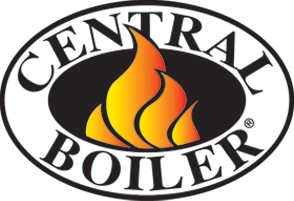If you’re thinking about getting a new air conditioner or are simply curious about how your current unit works, you might wonder whether AC units still use Freon. Freon, a brand name for a type of refrigerant known as R-22, has been a common coolant in air conditioning systems for many years. However, due to environmental concerns and regulatory changes, the use of Freon is becoming less common. Let’s explore the current state of refrigerants in air conditioning units and what you need to know.
The Environmental Impact of Freon

Freon has been found to have a significant impact on the environment, particularly the ozone layer. When released into the atmosphere, R-22 contributes to ozone depletion, which increases the amount of harmful ultraviolet radiation reaching the Earth. This can lead to health issues such as skin cancer and cataracts, as well as environmental problems like reduced crop yields and disrupted ecosystems. Learn more about ozone depletion.
The Phase-Out of Freon
In response to these environmental concerns, the production and importation of Freon have been gradually phased out. The United States Environmental Protection Agency (EPA) began implementing regulations in the 1990s to reduce the use of ozone-depleting substances. As of January 1, 2020, the production and importation of Freon (R-22) were completely banned in the U.S. Existing supplies of Freon can still be used for servicing older systems, but no new Freon is being produced or imported. Read more about the EPA’s regulations.
Modern Refrigerants
Newer air conditioning units now use more environmentally friendly refrigerants. The most common replacement for Freon is R-410A, which is marketed under brand names such as Puron. R-410A does not deplete the ozone layer and is more efficient in terms of energy consumption, making it a better choice for both the environment and your wallet. Learn about R-410A.
What This Means for Homeowners
If you have an older air conditioning unit that uses Freon, you don’t need to panic. You can still have your unit serviced, but it might become more expensive over time as the supply of Freon dwindles. It’s a good idea to start planning for the future by considering the replacement of your old unit with a newer, more efficient model that uses R-410A or another modern refrigerant.
Benefits of Upgrading Your AC Unit
Upgrading to a new air conditioning unit that uses R-410A has several benefits:
- Environmental Impact: By using a refrigerant that does not deplete the ozone layer, you’re contributing to a healthier environment.
- Energy Efficiency: Newer units are generally more energy-efficient, which can lead to lower utility bills.
- Improved Performance: Modern AC units are designed to be more effective at cooling, providing better comfort in your home.
- Cost Savings: Although the initial cost of a new unit can be high, the long-term savings on energy bills and maintenance can offset this expense.
Conclusion
While Freon was once the standard refrigerant for air conditioning units, its negative impact on the environment has led to a phase-out in favor of more sustainable alternatives like R-410A. If your current AC unit still uses Freon, it’s wise to plan for an upgrade to a more efficient and eco-friendly model. Doing so not only helps protect the environment but also ensures better performance and cost savings for you. For more information and expert advice on air conditioning, visit AC Maintenance Service.









